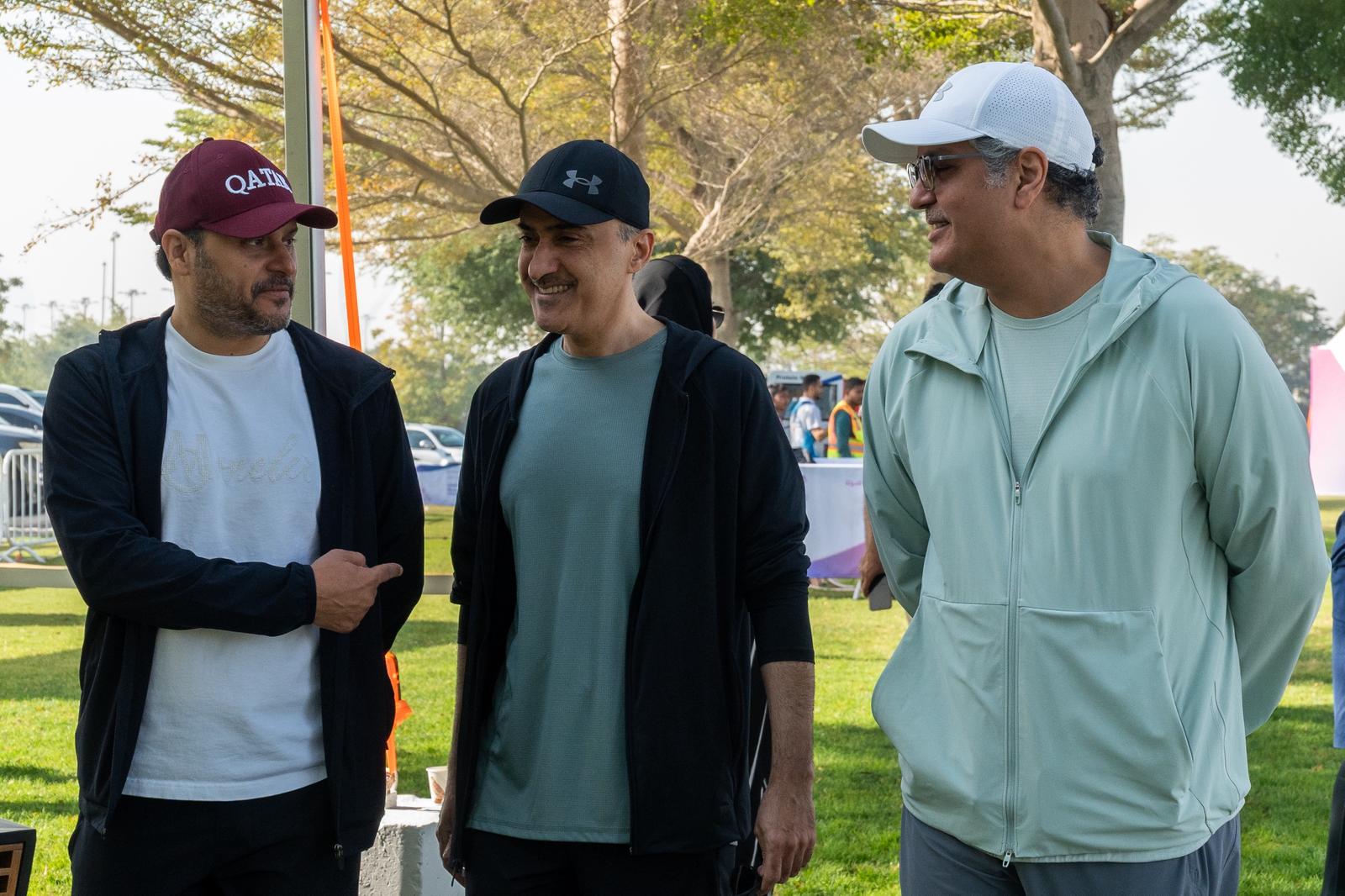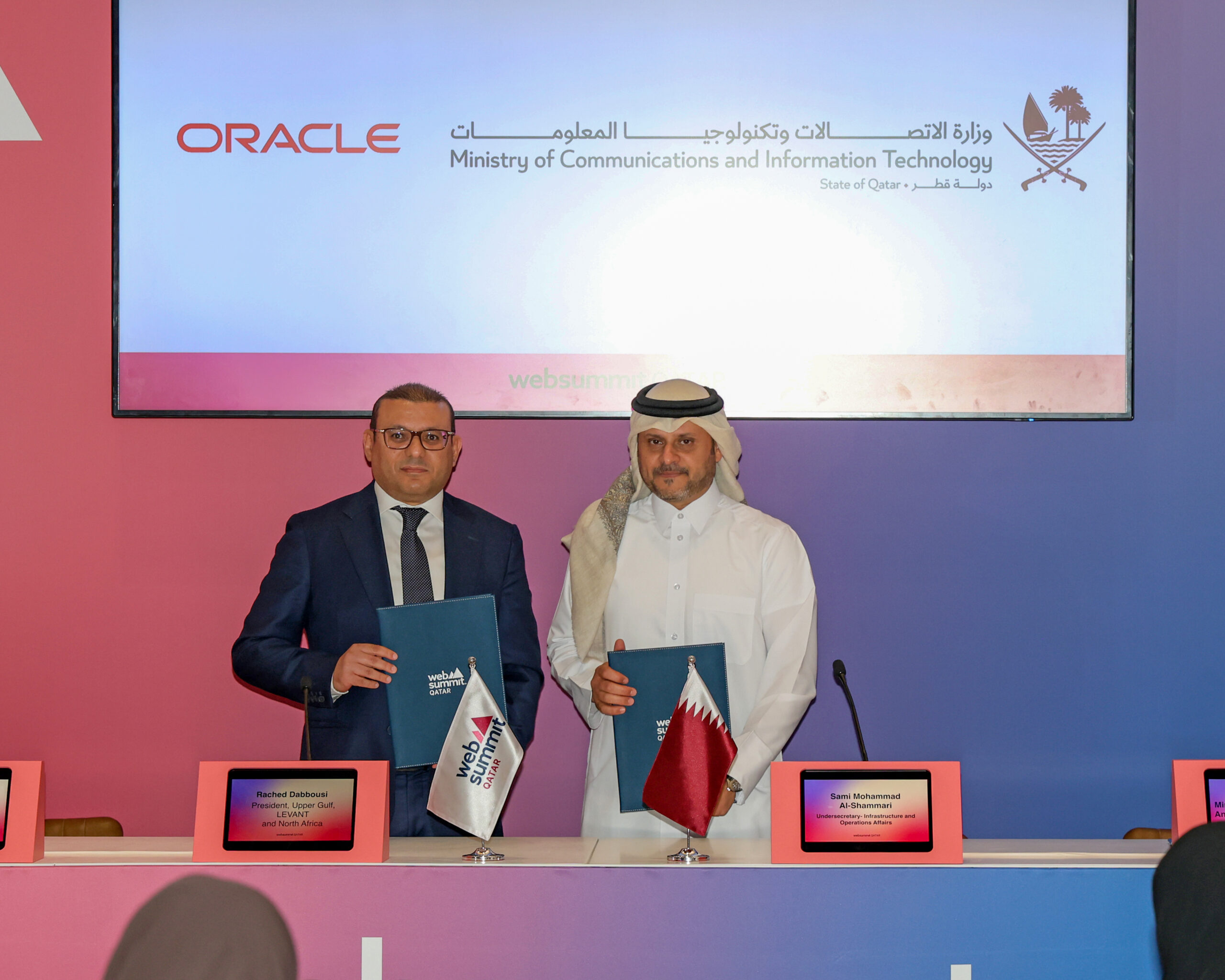- English

MCIT Concludes its Participation in AI Conference, Emphasizing the priority of Human in the Age of Technology
- The conference was held in Doha on May 27–28, 2025, under the theme: “Artificial Intelligence and Human Rights: Opportunities, Risks, and Visions for a Better Future.”
- E. Minister Mohammed bin Ali Al Mannai emphasized in his keynote address that artificial intelligence has become a transformative force requiring governance frameworks that ensure fairness and inclusivity, stressing the importance of international cooperation in this field.
- The sessions addressed ethical challenges related to AI, such as algorithmic bias, privacy violations, and lack of accountability.
- Hassan Jassim Al Sayed presented a strategic vision during a dedicated session on aligning technological advancement with human values, showcasing international best practices.
- The Ministry highlighted, through its interactive booth, its leading initiatives in the responsible development and use of artificial intelligence, including the Ethical Principles and Guidelines for the Development and Use of AI and a range of national projects.
- MCIT participated in the technical committee that developed the conference’s final recommendations.
The Ministry of Communications and Information Technology (MCIT) has concluded its participation in the International Conference on Artificial Intelligence and Human Rights, organized by the National Human Rights Committee from May 27 to 28, 2025, at The Ritz-Carlton, Doha – Lusail Ballroom. Held under the theme “Artificial Intelligence and Human Rights: Opportunities, Risks, and Visions for a Better Future”, the conference brought together a host of local and international dignitaries and experts to explore ways to strike a balance between technological advancement and the protection of human rights in an era of rapidly expanding AI applications.
In his opening remarks, H.E. Mr. Mohammed bin Ali Al Mannai, Minister of Communications and Information Technology, highlighted that AI is no longer merely a technical tool—it has evolved into a powerful force reshaping human realities and influencing decisions that directly impact human dignity. He stressed the urgent need for clear governance frameworks grounded in fairness, inclusivity, and accountability. His Excellency also referred to the Ministry’s Ethical Principles and Guidelines for the Development and Use of AI Technologies as a national reference for promoting the safe and responsible use and development of AI.
H.E reaffirmed Qatar’s commitment to digital ethics and inclusivity, noting the launch of a national index to assess the digital inclusion of all segments of society. He concluded his address by underscoring the importance of international collaboration in developing legislative frameworks that keep AI in service of humanity first.
The Ministry took part in the technical committee responsible for drafting the conference’s final recommendations, building on its active participation in community sessions and dialogue discussions. The Ministry’s contribution stemmed from its commitment to supporting the conference’s key tracks, helping shape practical outcomes that address the challenges raised and offer actionable recommendations to ensure alignment between technological advancement and the protection of human rights.
During a panel discussion titled “The need for AI Governance: Best Practices for Using Artificial Intelligence in Accordance with Ethical Standards”, Mr. Hassan Jassim Al Sayed, Minister’s advisor and Artificial Intelligence Committee Chairman, presented a vision for aligning technological development with core human values. He emphasized that linking AI and human rights is a strategic imperative to ensure a fair and safe digital environment. Ethical governance, he noted, requires more than policies; it must be rooted in principles that uphold human dignity, prevent bias, and promote transparency.
Mr. Al Sayed also showcased leading international AI governance models, including the OECD’s AI principles and UNESCO’s ethical AI framework, highlighting their role as guiding tools for crafting balanced national policies. The session explored the application of these principles at the national level, emphasizing the need for transparency, fairness, and accountability in AI system development. He called for stronger collaboration among governments, the private sector, and civil society to build a human-centered governance framework.
On the sidelines of the conference, MCIT presented an interactive booth as part of the accompanying exhibition, showcasing the Ministry’s flagship initiatives in ethical AI governance. The booth highlighted two recently launched guidance documents that serve as practical references for the use and development of AI systems in line with principles of transparency, fairness, accountability, and data privacy. These publications are among the first of their kind in the region, offering a practical and ethical framework for AI adoption within government institutions.
The booth also featured rich multimedia content and interactive displays of several AI-related national projects and smart government applications. The exhibit received wide acclaim from participants and experts, who praised the Ministry’s commitment to advancing responsible and human-centric AI use. Many regarded Qatar’s experience as a regional model for harmonizing digital transformation with core human values.
Throughout the conference sessions, participants tackled critical ethical and legal challenges related to AI applications, including algorithmic bias, privacy violations, and the accountability of AI-driven decisions. The discussions underscored the urgent need for flexible legislative frameworks that can keep pace with rapid technological change, while embedding human values at the heart of all digital transformation efforts. The outcomes reflected a broad consensus on the need to balance innovation with the protection of fundamental rights to foster public trust in AI technologies.
MCIT’s participation in the conference reflects its ongoing commitment to strengthening both national and international partnerships. These efforts are part of a broader strategy aimed at striking a meaningful balance between technological innovation and ethical values. The Ministry is actively working on two parallel tracks: developing supportive local policies and legal frameworks and building global cooperation with relevant organizations and institutions. This approach aligns with the goals of Qatar National Vision 2030 and the Digital Agenda 2030.




